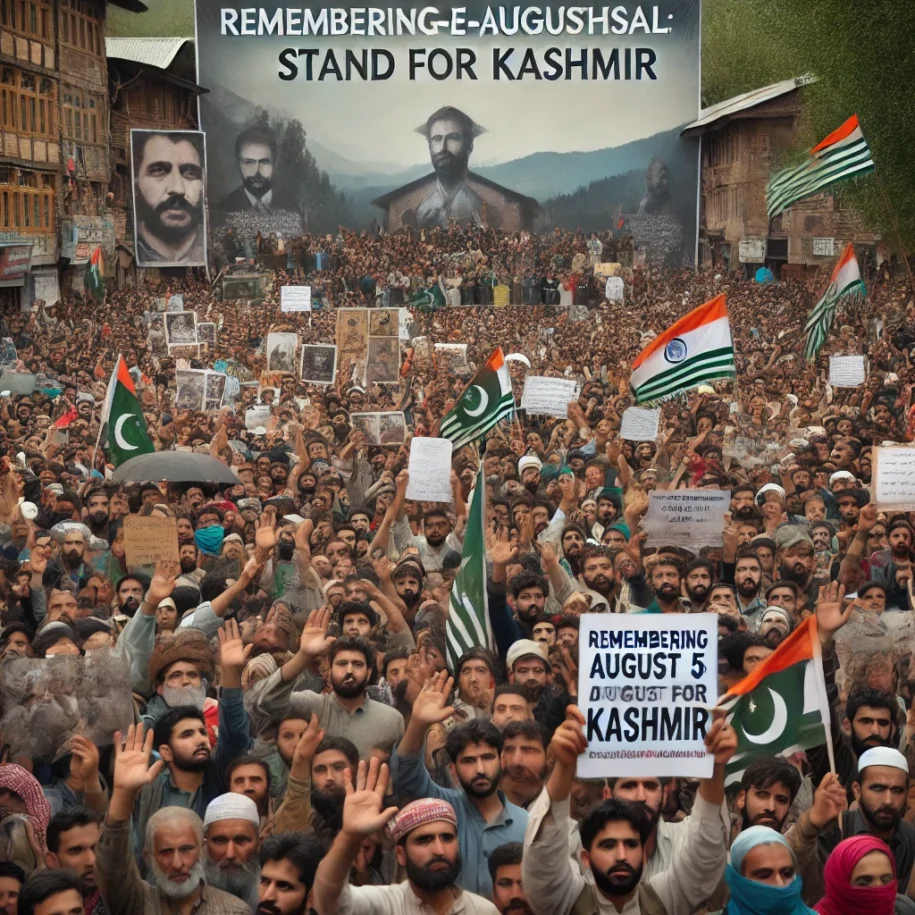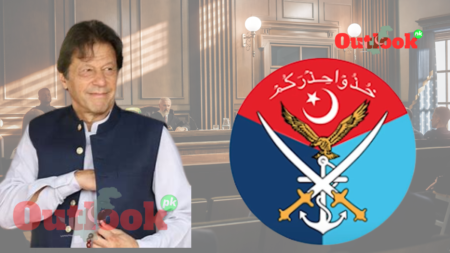The Significance of Youm-e-Istehsal
Youm-e-Istehsal, or the “Day of Exploitation,” is observed annually on August 5 to mark the day in 2019 when the Indian government unilaterally revoked the special status of Jammu and Kashmir. This day is a poignant reminder of the struggles faced by the Kashmiri people and the ongoing human rights violations in the region. The move, seen as an illegal attempt to alter the region’s demographics and political landscape, has been widely condemned by Pakistan’s leadership and the international community.
On this day, leaders from across Pakistan, including President Asif Ali Zardari and Prime Minister Shehbaz Sharif, express their unwavering support for the Kashmiri people’s right to self-determination. They call on the international community to pressure India to respect the United Nations Security Council resolutions and end its human rights abuses in the region.
A Dark Day in Kashmir’s History
The abrogation of Articles 370 and 35-A of the Indian Constitution on August 5, 2019, marked a significant turning point in Kashmir’s history. These provisions granted special autonomy to Jammu and Kashmir, allowing the region to have its own constitution and autonomy over internal matters, except defense, communications, and foreign affairs. The removal of these articles led to widespread condemnation and protests, both within and outside the region.
President Zardari emphasized that the actions taken by India since that day aim to undermine the internationally recognized disputed status of Jammu and Kashmir. He highlighted that the Indian government has initiated a campaign to alter the demographic and political fabric of the region through measures such as issuing domicile certificates to non-residents, redrawing electoral boundaries, and changing property ownership laws. These actions violate international laws, including the Fourth Geneva Convention, and the UN Security Council resolutions.
Pakistan’s Stance and International Appeals
Pakistan’s leadership has consistently condemned India’s actions in Jammu and Kashmir, advocating for the region’s right to self-determination. Prime Minister Shehbaz Sharif reiterated Pakistan’s commitment to providing moral, diplomatic, and political support to the Kashmiri people. He called for the international community to intervene and halt India’s ongoing human rights violations in Indian Illegally Occupied Jammu and Kashmir (IIOJK).
PM Shehbaz Sharif saluted the “indomitable courage” of the Kashmiri people, who continue to resist India’s attempts to suppress their rights. He criticized India’s efforts to portray Jammu and Kashmir as an integral part of its territory, pointing out that historical facts, international law, and ground realities contradict India’s claims.
The Chairman Joint Chiefs of Staff Committee (CJCSC), along with other military leaders, expressed solidarity with the Kashmiri people. They condemned the severe human rights abuses and the military lockdown imposed by Indian forces in the region. The Pakistani military leadership emphasized that sustainable peace in South Asia is contingent upon resolving the Kashmir dispute in line with the wishes of the Kashmiri people and international agreements.
The Humanitarian Crisis in Kashmir
The situation in IIOJK has been described as one of the most heavily militarized zones in the world. Since the revocation of the region’s special status, there have been widespread reports of human rights violations, including the harassment of civilians, arbitrary detentions, and suppression of free speech. President Zardari highlighted that the mistreatment of journalists and human rights defenders further exposes India’s attempts to silence dissent.
The international community has raised concerns over the situation in Kashmir, with various human rights organizations documenting the abuses. However, there is a pressing need for more concrete actions to hold India accountable and ensure justice for the affected individuals.
The Path Forward: Seeking Justice and Peace
As the people of Pakistan and Kashmir observe Youm-e-Istehsal, there is a collective call for justice and peace. The leaders emphasized that the resolution of the Kashmir dispute is crucial for lasting stability in the region. They urged the Indian government to cease its repressive measures, restore the region’s special status, and engage in dialogue to find a peaceful solution.
Prime Minister Shehbaz Sharif stated that the international community must play a more active role in addressing the crisis. He called for the implementation of UN Security Council resolutions, which call for a plebiscite to allow the Kashmiri people to determine their future.
FAQs
1. What is Youm-e-Istehsal?
Youm-e-Istehsal is observed on August 5 to mark the anniversary of India’s revocation of Jammu and Kashmir’s special status in 2019. It serves as a day of protest and remembrance for the injustices faced by the Kashmiri people.
2. Why were Articles 370 and 35-A significant?
Articles 370 and 35-A granted special autonomy to Jammu and Kashmir, allowing it to have its own constitution and control over internal matters. Their abrogation led to widespread unrest and condemnation.
3. What has been Pakistan’s response to the situation in Kashmir?
Pakistan has consistently supported the Kashmiri people’s right to self-determination. The country’s leadership condemns India’s actions and calls for international intervention to end human rights abuses in the region.
4. What are the reported human rights violations in Kashmir?
Reports from international organizations highlight severe human rights violations in Kashmir, including harassment, arbitrary detentions, and restrictions on free speech. The region is heavily militarized, with significant suppression of civilian rights.
5. What is the international community’s role in the Kashmir dispute?
The international community is urged to pressure India to respect UN resolutions and human rights norms. A peaceful resolution to the Kashmir dispute is essential for regional stability.
Conclusion
Youm-e-Istehsal serves as a somber reminder of the ongoing struggles faced by the Kashmiri people under Indian occupation. The day highlights the need for a just resolution to the Kashmir dispute, in line with international law and the aspirations of the Kashmiri people. As Pakistan continues to stand in solidarity with Kashmir, there is hope that the international community will take meaningful steps to address the crisis and pave the way for peace and justice in the region.







